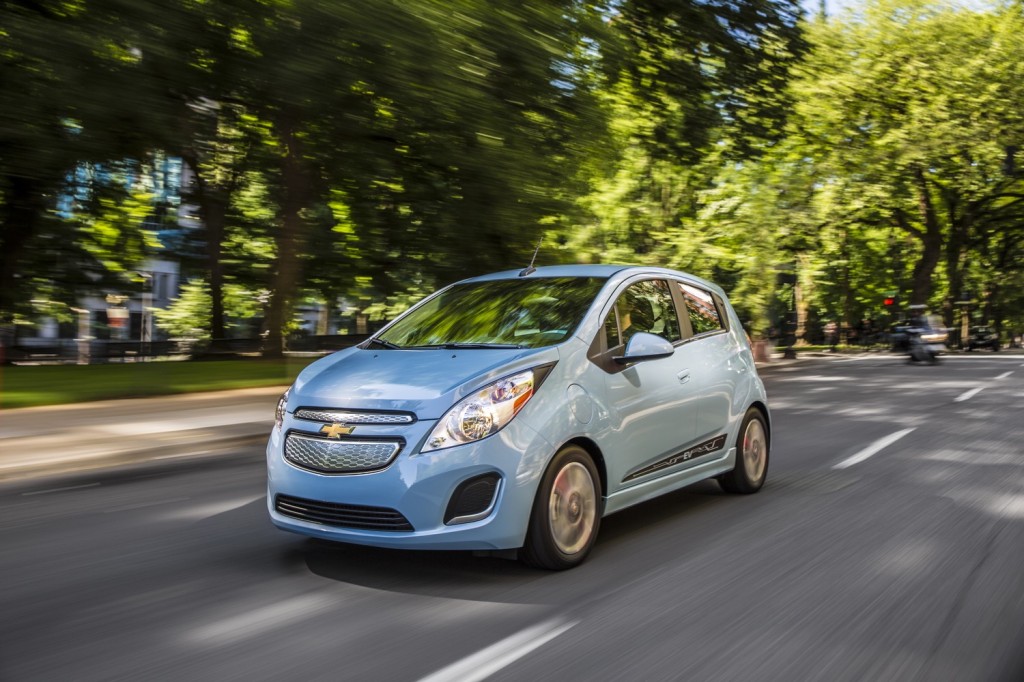You may have encountered ad-supported streaming services or smartphone apps at one point or another; they're free to use, as long as you're willing to deal with intermittent ads.
Now imagine that model being applied to car sharing.
That's the idea behind a new startup in California, which combines increasingly popular car sharing with an ad-supported model.
DON'T MISS: Is An Electric Scoot Quad (Nee Renault Twizy) Car-Sharing's Urban Future? (Nov 2015)
WaiveCar lets customers in certain parts of California "rent" cars for up to two hours--for free.
Those rentals are paid for by ads, in the form of signs mounted on car roofs, just like the ones used by taxi cabs.
"We're giving to the lower-income people that need cars," and taking from wealthy companies that pay for advertising, WaiveCar CEO Isaac Deutsch told Digital Trends.

WaiveCar Chevrolet Spark EV electric cars at Santa Monica launch party
Drivers will be charged $6.00 per hour if they use the car for more than two hours.
The WaiveCar fleet currently consists of Chevrolet Spark EV electric cars, so its business model dovetails nicely with current state policies.
California lawmakers are eager to give lower-income individuals greater access to electric cars. New rules for the state's incentive program increase the size of purchase rebates for lower-income buyers, and add income caps on eligibility.
ALSO SEE: Rich Electric-Car Buyers In CA Face Mid-March Deadline For Rebates
But free two-hour car rentals could be an effective solution as well, assuming WaiveCar's model scales up successfully.
It could also solve some issues related to vehicular advertising.
Mobile billboards create needless emissions, since they require putting another vehicle--and its exhaust--on the road just to show an ad.

2015 Chevrolet Spark EV
But using zero-emission electric cars, especially from a low-carbon grid like California's, neatly circumvents that problem.
Combining advertising with car sharing may also amplify emissions savings, since it can potentially help take both commercial and private vehicles off the road.
WaiveCar recently undertook a "soft launch" in Venice Beach and Santa Monica, and will test its service for three months before considering any expansion.
MORE: Los Angeles Gets State Grant To Test Electric-Car Sharing Program (Jul 2015)
Like other car-sharing services, WaiveCar is coordinated using a smartphone app.
Future updates will include rewards for dropping off cars at popular locations, and the ability to select different car models when those become available, the company says.
The service currently operates 20 Spark EV hatchbacks, but plans to eventually grow its fleet to 200 cars in the near future.
_______________________________________________












